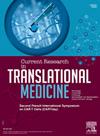Trends in drug repurposing: Advancing cardiovascular disease management in geriatric populations
IF 3
4区 医学
Q2 MEDICINE, RESEARCH & EXPERIMENTAL
引用次数: 0
Abstract
Drug repurposing is a promising strategy for managing cardiovascular disease (CVD) in geriatric populations, offering efficient and cost-effective solutions. CVDs are prevalent across all age groups, with a significant increase in prevalence among geriatric populations. The middle-age period (40–65 years) is critical due to factors like obesity, sedentary lifestyle, and psychosocial stress. In individuals aged 65 and older, the incidence of CVDs is highest due to age-related physiological changes and prolonged exposure to risk factors. In this review we find that certain drugs, such as non-cardiovascular drugs like anakinra, probenecid, N-acetyl cysteine, quercetin, resveratrol, rapamycin, colchicine, bisphosphonates, hydroxychloroquine, SGLT-2i drugs, GLP-1Ras drugs and sildenafil are recommended for drug repurposing to achieve cardiovascular benefits in geriatric patients. However, agents such as canakinumab, methotrexate, ivermectin, erythromycin, capecitabine, carglumic acid, chloroquine, and furosemide are constrained in their therapeutic use and warrant meticulous consideration, rendering them less favorable for this specific application. This review emphasizes the importance of exploring alternative therapeutic strategies to improve outcomes in geriatric populations and suggests drug repurposing as a promising avenue to enhance treatment efficacy.
药物再利用趋势:推进老年人群心血管疾病管理。
药物再利用是管理老年人群心血管疾病(CVD)的一种很有前途的策略,提供了高效和具有成本效益的解决方案。心血管疾病在所有年龄组中普遍存在,其中老年人群的患病率显著增加。由于肥胖、久坐不动的生活方式和社会心理压力等因素,中年时期(40-65岁)是关键时期。在65岁及以上的个体中,由于与年龄相关的生理变化和长期暴露于危险因素,心血管疾病的发病率最高。在这篇综述中,我们发现某些药物,如阿那白、probenecid、n-乙酰半胱氨酸、槲皮素、白藜芦醇、雷帕霉素、秋水仙碱、双膦酸盐、羟氯喹、SGLT-2i药物、GLP-1Ras药物和西地那非等非心血管药物被推荐用于药物再利用,以实现老年患者心血管的益处。然而,canakinumab、甲氨蝶呤、伊维菌素、红霉素、卡培他滨、甘油三酸、氯喹和呋塞米等药物在治疗用途上受到限制,需要仔细考虑,使它们不太适合这种特殊应用。这篇综述强调了探索替代治疗策略以改善老年人群预后的重要性,并建议药物再利用是提高治疗效果的有希望的途径。
本文章由计算机程序翻译,如有差异,请以英文原文为准。
求助全文
约1分钟内获得全文
求助全文
来源期刊

Current Research in Translational Medicine
Biochemistry, Genetics and Molecular Biology-General Biochemistry,Genetics and Molecular Biology
CiteScore
7.00
自引率
4.90%
发文量
51
审稿时长
45 days
期刊介绍:
Current Research in Translational Medicine is a peer-reviewed journal, publishing worldwide clinical and basic research in the field of hematology, immunology, infectiology, hematopoietic cell transplantation, and cellular and gene therapy. The journal considers for publication English-language editorials, original articles, reviews, and short reports including case-reports. Contributions are intended to draw attention to experimental medicine and translational research. Current Research in Translational Medicine periodically publishes thematic issues and is indexed in all major international databases (2017 Impact Factor is 1.9).
Core areas covered in Current Research in Translational Medicine are:
Hematology,
Immunology,
Infectiology,
Hematopoietic,
Cell Transplantation,
Cellular and Gene Therapy.
 求助内容:
求助内容: 应助结果提醒方式:
应助结果提醒方式:


